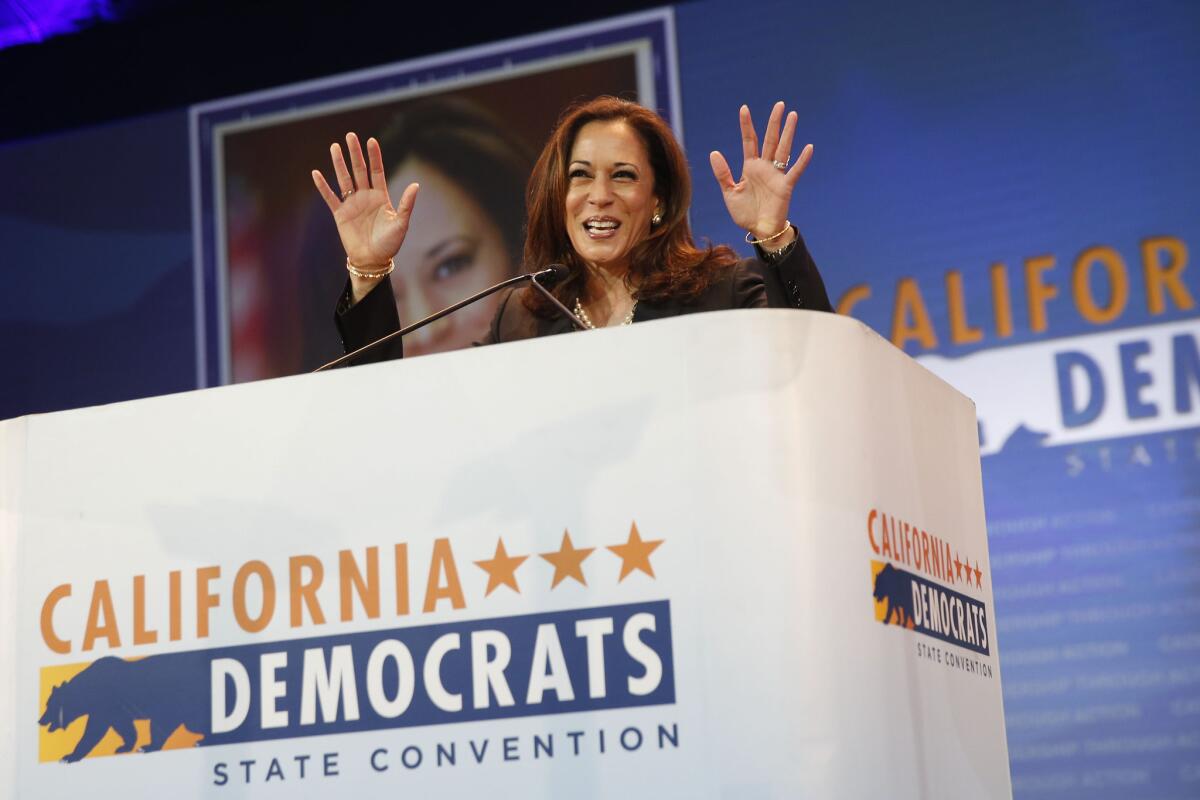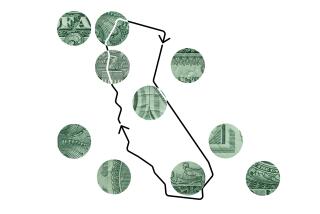U.S. Supreme Court is asked to shield major donors in California

A conservative group has asked the
A conservative group based in Virginia that fights for free speech and free spending in politics is asking the U.S. Supreme Court to block California Atty. Gen. Kamala Harris from seeing its list of major donors.
Requiring disclosure to “political officeholders” would “violate the privacy of its donors,” lawyers for the Center for Competitive Politics said in an emergency appeal filed with Justice Anthony M. Kennedy.
Last year, the group sued Harris after she demanded the donor list and threatened to end its tax-exempt status as a charity raising funds in California. Lawyers for the group said that disclosing its donors would violate the “freedom of association” protected by the 1st Amendment. So far, the group has lost before a federal judge in Sacramento and the 9th Circuit Court of Appeals in San Francisco.
Americans for Prosperity Foundation, a nonprofit group that is supported by Charles and David Koch and also raises tax-exempt funds in California, has a similar suit pending in federal court.
At issue is a disclosure form that charitable groups must submit to the Internal Revenue Service. It includes a list of donors who contribute more than $5,000 in one year.
Harris, whose duties include enforcing California’s law on charitable trusts, said her office needed to see a copy of the IRS form, including the list of donors. In her letter to the Virginia-based group, she said the donor list would be retained as a “confidential record” and not released to the public. The information may be needed for investigations involving whether the group was a legitimate charity, she said.
Harris was not alone in her request. The 9th Circuit noted that state attorneys from Florida, New York, Hawaii, Mississippi and Kentucky had also demanded to see the list of donors.
But lawyers for the two conservative groups said their donors feared “bullying” and harassment if their names were revealed to the California attorney general. In their appeal to the Supreme Court, they cited high court decisions from the civil rights era that shielded the NAACP from disclosing its membership list to state officials in Alabama.
The 9th Circuit judges refused to block the disclosure on May 1 and said they saw no evidence that the donors faced a serious threat.
In contrast to Alabama in the late 1950s, the conservative group “has not shown any actual burden on its freedom of association,” wrote Judge Richard Paez.
David Keating, the president of the group, said the ruling “asks us to make an impossible choice: either retroactively disclose donors to the attorney general or cease asking Californians to support our work to defend free speech.”
The group says it will file a full appeal within three months asking the high court to review the 9th Circuit’s ruling. Until then, it urged the justices to issue an order blocking Harris from taking any action.
Justice Kennedy, who oversees emergency appeals from the West Coast, will likely ask for a response from Harris’ office. After it is received, the justices are expected to act on the request within a few days.
For more on the Supreme Court, follow @DavidGSavage on Twitter.
More to Read
Start your day right
Sign up for Essential California for news, features and recommendations from the L.A. Times and beyond in your inbox six days a week.
You may occasionally receive promotional content from the Los Angeles Times.







